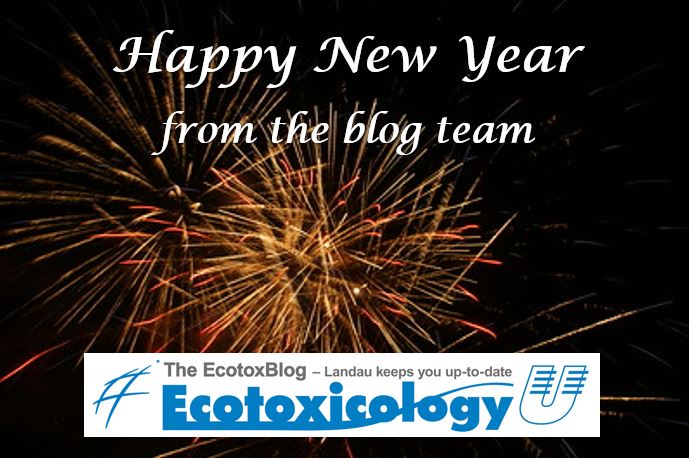In this post, the blog team revisits three more of the most read posts of the year 2020, and wishes all readers a great start into the new year 2021.
After a rather challenging year of 2020, we are excited to start a new year and keep all of you up-to-date on research, thesis, and job opportunities; new publications and projects; seminar series; workshops; and everything else that is going on in the field of ecotoxicology. To wrap up 2020, we want to share another three of our most impactful posts, which show the diversity of content that the EcotoxBlog covers – from long-term experiments that assess the effects of anthropogenic stressors, to highlighting students’ experiences in ecotoxicology.
(1) Effects of stressors on comlex ecosystems
Meet jointPE – A long-term pot experiment of our SystemLink group
In this post, Kai Riess and Verena Rösch highlight a long-term pot experiment to evaluate the effects of anthropogenic stressors on native plants, soil organisms, and rhizosphere properties. They evaluate varying levels of fungicides and invasive species that can be stressful to ecosystems.
(2) Student experiences in the field of ecotoxicology
Spotlight on Students in Ecotox: Linda R. Lara-Jacobo
This blog series showcases student research and experiences in the field of ecotoxicology around the world. Today, meet Linda R. Lara-Jacobo from the Institut national de la recherche scientifique in Canada, specializing in endocrine disruptors and ecotoxicogenomics.
(3) Biocides and their environmental and socioeconomic effects
What are the environmental and socioeconomic effects of using Bti for mosquito control?
In this blog, Carsten Brühl and his co-authors are introducing a review paper on the environmental and socioeconomic effects of mosquito control in Europe using the biocide Bacillus thuringiensis subsp. israelensis (Bti). Although Bti is currently the most selective and least toxic agent available for mosquito control, the involved researchers ask for independent monitoring of resistance, persistence, and effects in ecosystems as well as a socio-economic assessment performed by bodies without conflicts of interest.
Happy New Year!

We want to thank everyone for their contributions and support of the EcotoxBlog and wish you – and all our readers – a happy new year!
You may also be interested in our recent post “Happy Holidays and Cheers to another year of great content” where we highlight the top three most read posts of 2020.
